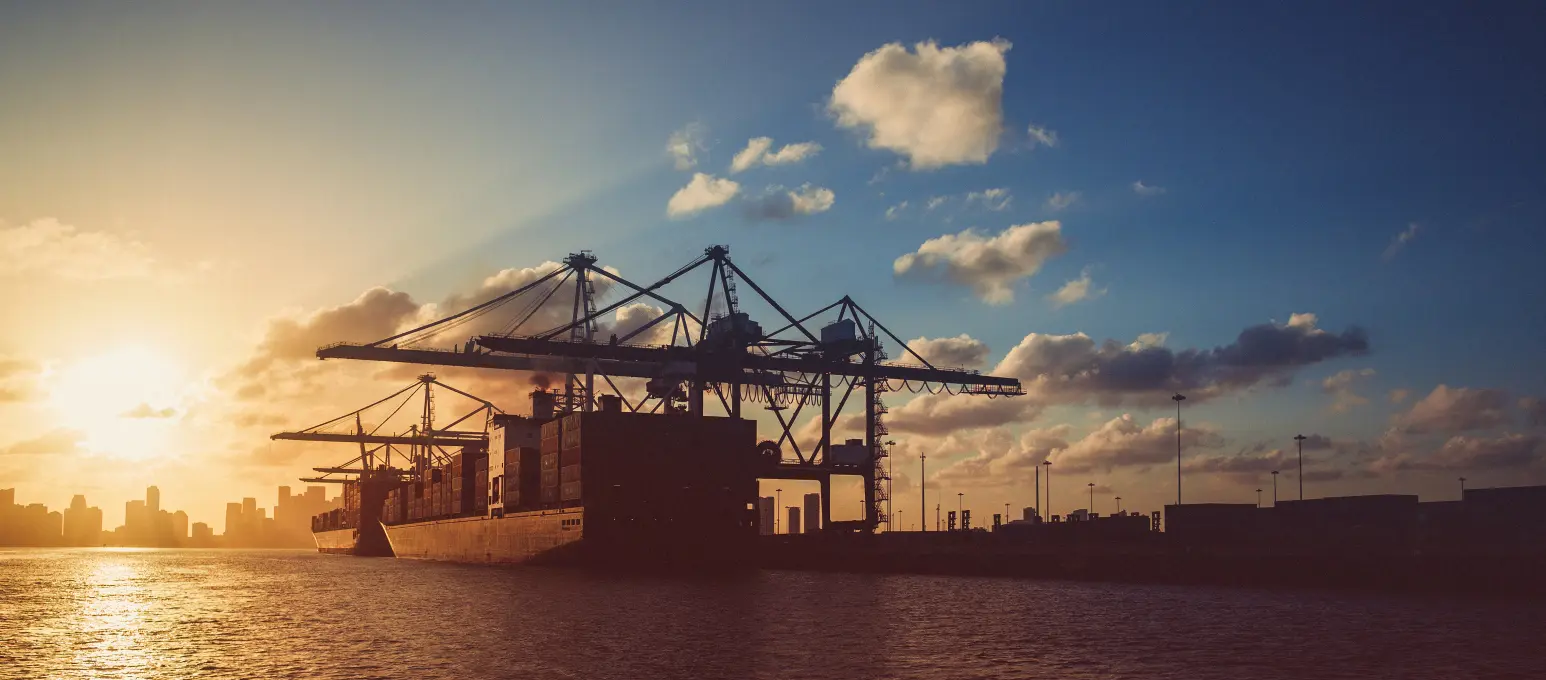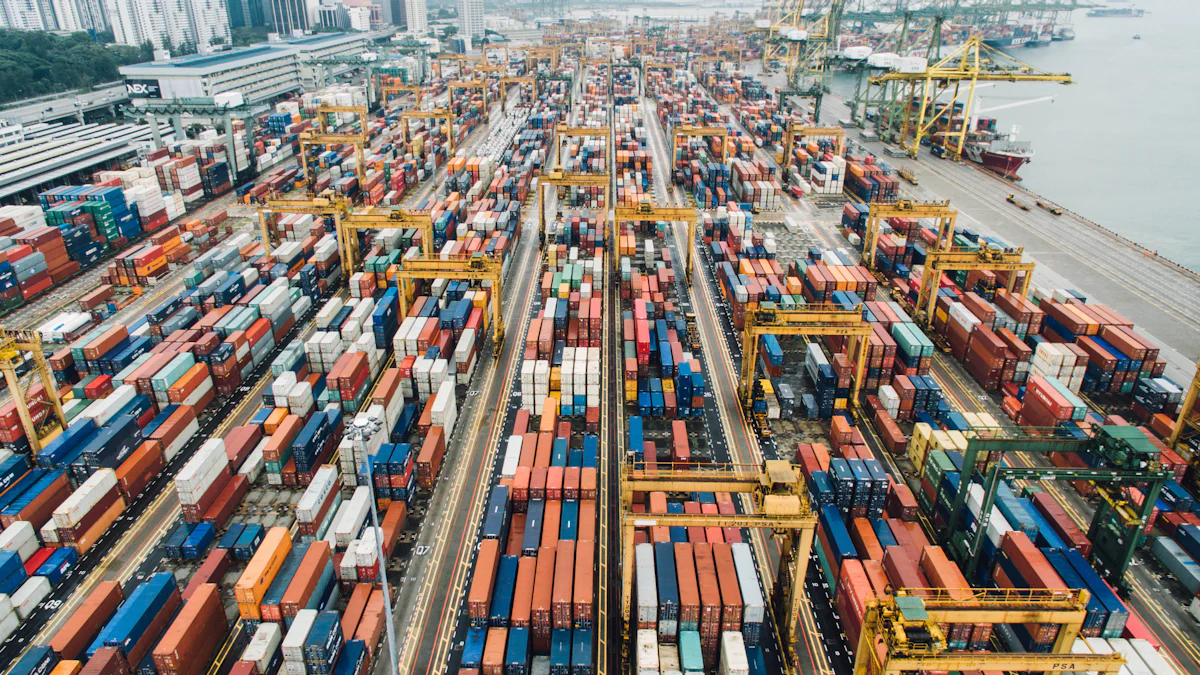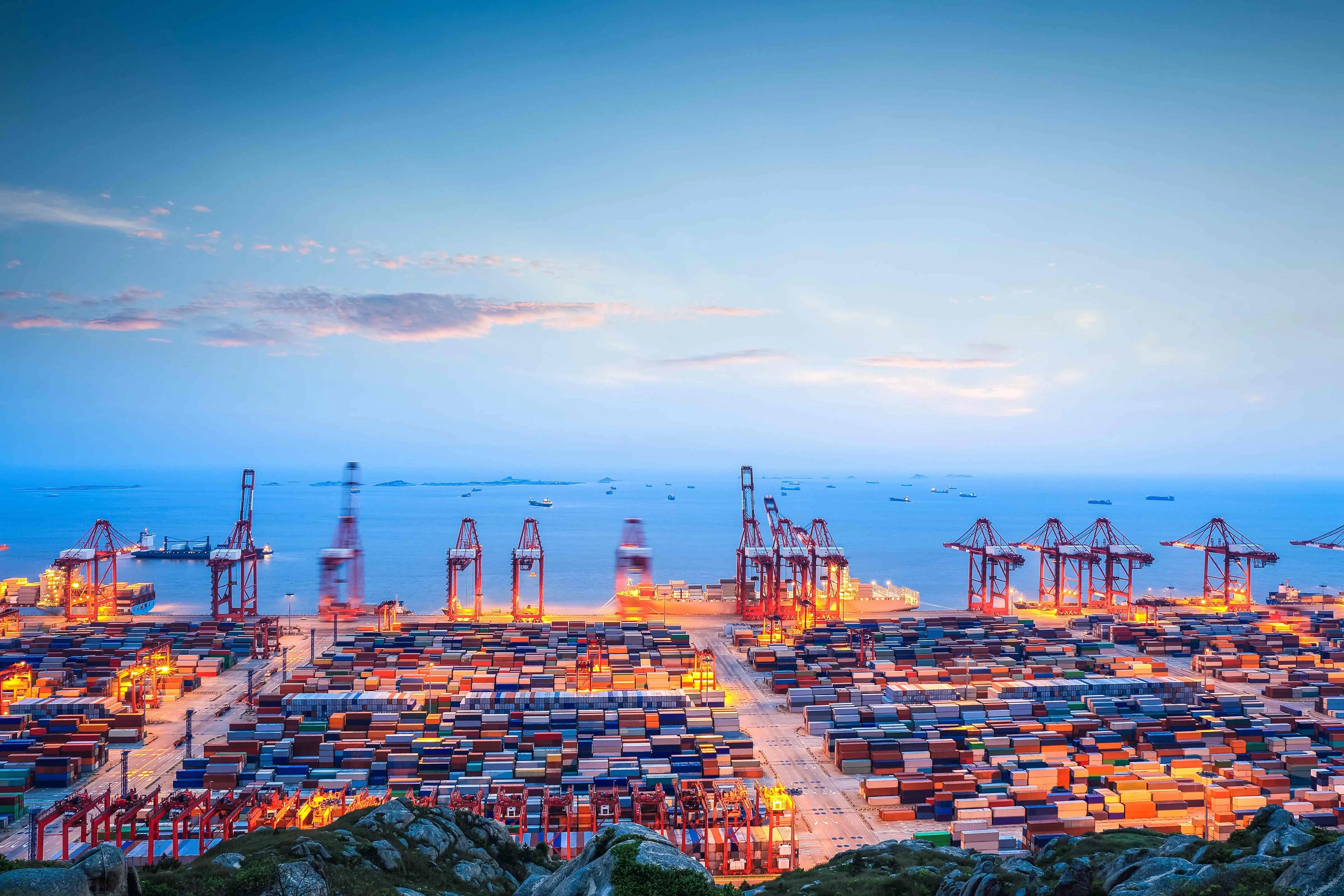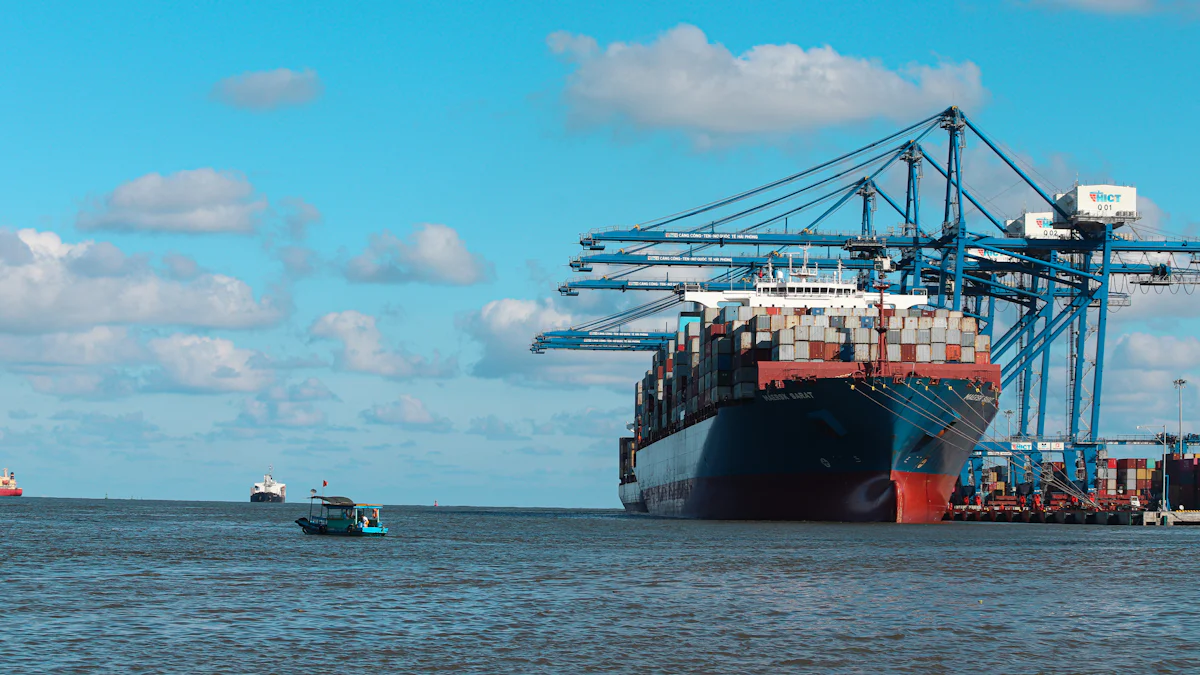What Every Shipper Should Know About Ocean Freight Forwarders

Ocean freight forwarders serve as vital links in the global trade chain. They manage documentation, customs clearance, and transportation coordination, ensuring your goods move smoothly across borders. Understanding their role is crucial for you as a shipper. By acting as intermediaries between you and ocean freight carriers, they facilitate efficient and cost-effective delivery. This knowledge empowers you to make informed decisions, optimizing your shipping processes and enhancing your business's competitiveness in the international market.
Understanding Ocean Freight Forwarders
Definition and Role
What is an Ocean Freight Forwarder?
An ocean freight forwarder acts as a pivotal player in the logistics industry. You might wonder what exactly they do. Essentially, they specialize in organizing the transportation of goods across international waters. Their expertise lies in understanding customs laws, transportation regulations, and the logistics market. This knowledge allows them to efficiently plan and execute the movement of your goods from one country to another.
Key Responsibilities and Services Offered
Ocean freight forwarders offer a range of services that are crucial for successful international shipping. Here are some of their key responsibilities:
Booking Cargo Space: They secure space on vessels for your shipments, ensuring timely delivery.
Documentation Management: Handling essential paperwork like bills of lading and customs declarations falls under their purview.
Customs Clearance: They navigate complex customs procedures, ensuring compliance with international regulations.
Logistics Coordination: By coordinating with various transportation services, they streamline the shipping process.
"A freight forwarder is a professional who specializes in organizing the transportation of goods. They have extensive knowledge of customs law and transportation regulations, negotiation skills, and excellent familiarity with the logistics market." - Freight Forwarding Expert
Importance in Global Trade
Facilitating International Shipping
In the realm of global trade, ocean freight forwarders play a vital role. They facilitate the seamless movement of goods across borders, which is essential for businesses aiming to expand internationally. By leveraging their vast network of logistical connections, they ensure that your shipments reach their destinations efficiently and safely.
Ensuring Compliance with Regulations
Compliance with international shipping regulations is non-negotiable. Ocean freight forwarders possess the expertise to navigate these regulations, minimizing the risk of delays or penalties. Their understanding of customs laws and transportation rules ensures that your goods adhere to all necessary legal requirements.
"Shipping goods internationally is a complicated and multifaceted process. For many businesses that rely on shipping internationally, freight forwarding companies provide a critical service, using their vast network of logistical connections to arrange and plan for goods to be shipped to their destination." - Freight Forwarding Expert
By understanding the role and importance of ocean freight forwarders, you can make informed decisions that enhance your shipping processes and boost your business's competitiveness in the global market.
Benefits of Using Ocean Freight Forwarders

Cost Efficiency
Economies of Scale
When you engage with ocean freight forwarders, you tap into the power of economies of scale. These professionals consolidate shipments from multiple clients, allowing them to negotiate bulk rates with carriers. This collective bargaining power translates into lower shipping costs for you. By sharing vessel space with other shippers, you benefit from reduced expenses, making your international shipping more cost-effective.
Negotiation of Better Rates
Ocean freight forwarders possess extensive industry knowledge and strong relationships with carriers. They leverage these connections to secure competitive rates on your behalf. Their expertise in rate negotiation ensures that you receive the best possible pricing for your shipments. By entrusting your shipping needs to a forwarder, you can focus on your core business activities while enjoying significant cost savings.
"Negotiating rates and optimizing shipping routes help businesses save on transportation costs." - Industry Expert
Expertise and Experience
Knowledge of Shipping Routes
Navigating the complex web of global shipping routes requires specialized knowledge. Ocean freight forwarders excel in this area, offering you insights into the most efficient and reliable paths for your cargo. Their familiarity with various routes enables them to select the best options, minimizing transit times and reducing the risk of delays. This expertise ensures that your goods reach their destination promptly and safely.
Handling of Complex Documentation
International shipping involves a myriad of documents, each with its own set of requirements. Ocean freight forwarders manage this intricate paperwork, ensuring compliance with all necessary regulations. They handle bills of lading, customs declarations, and other essential documents, freeing you from the burden of administrative tasks. By relying on their expertise, you can avoid costly errors and focus on growing your business.
Challenges and Considerations
Potential Risks
Delays and Unforeseen Circumstances
In the world of ocean freight forwarding, delays and unforeseen circumstances can pose significant challenges. You might encounter unexpected weather conditions, port congestion, or vessel breakdowns. These factors can disrupt your shipping schedule and lead to costly delays. To mitigate these risks, you should work with a freight forwarder who proactively monitors shipments and communicates any potential issues promptly. By staying informed, you can make necessary adjustments and minimize the impact on your supply chain.
Security Concerns
Security remains a top priority in international shipping. You must ensure that your goods are protected from theft, damage, or loss during transit. Ocean freight forwarders play a crucial role in safeguarding your shipments. They implement stringent security measures, such as proper packing and loading, to prevent unauthorized access. Additionally, they maintain detailed records of shipping activities, providing you with peace of mind and traceability throughout the journey.
"Freight forwarders can reduce risks by carefully choosing their shipping companies, ensuring proper packing and loading, tracking shipments, and keeping records of shipping activities."
Choosing the Right Forwarder
Evaluating Reputation and Reliability
Selecting the right freight forwarder is essential for your business's success. You should evaluate their reputation and reliability before making a decision. Look for forwarders with a proven track record of timely and safe deliveries. Customer reviews and industry certifications can provide valuable insights into their performance. A reliable forwarder will help you reduce costs, streamline operations, and ensure that your goods reach their destination without complications.
"Choosing the right freight forwarding company is essential for any business relying on shipping and logistics."
Assessing Technological Capabilities
In today's digital age, technological capabilities are a critical factor when choosing a freight forwarder. You should assess their use of technology to enhance efficiency and transparency. Forwarders that leverage advanced tracking systems and digital platforms offer real-time visibility into your shipments. This level of transparency allows you to monitor progress and make informed decisions. By partnering with a technologically adept forwarder, you can optimize your logistics processes and stay ahead in the competitive market.
"A reliable and efficient freight forwarder can help reduce costs, streamline operations, and ensure timely and safe deliveries."
Role of Ocean Freight Carriers
Understanding Ocean Freight Carriers
Differences Between Carriers and Forwarders
When navigating the world of shipping, you must understand the distinct roles of ocean freight carriers and freight forwarders. Freight forwarders act as intermediaries between you and the carriers. They coordinate the movement of goods, manage documentation, and provide additional services to ensure smooth transportation from origin to destination. In contrast, carriers focus on the physical transportation of goods. They are responsible for moving your cargo across the ocean, utilizing their vessels to deliver shipments efficiently.
"Freight forwarders handle logistics, documentation, and coordination, while carriers focus on the physical transportation of goods."
Importance of Carrier Selection
Choosing the right ocean freight carrier is crucial for your shipping success. The carrier you select impacts the speed, reliability, and cost of your shipments. A reputable carrier ensures timely deliveries and minimizes the risk of damage or loss. You should evaluate carriers based on their track record, network coverage, and service offerings. By selecting a carrier that aligns with your shipping needs, you enhance the efficiency and reliability of your supply chain.
JUSDA's Approach to Ocean Freight Carriers
Integration with JusLink Intelligent Supply Chain
JUSDA leverages its JusLink Intelligent Supply Chain to optimize interactions with ocean freight carriers. This platform integrates IoT, cloud computing, and big data to facilitate real-time collaboration and information sharing. By using JusLink, you gain enhanced visibility into your shipments, allowing you to track progress and make informed decisions. This integration streamlines operations and ensures that your goods move seamlessly through the supply chain.

JUSDA Solutions
To provide you with professional solutions and quotations.
Leveraging Global Network for Efficiency
JUSDA's extensive global network enhances its ability to work effectively with ocean freight carriers. With over 155 service points worldwide, JUSDA connects you to a vast array of shipping routes and options. This network enables JUSDA to negotiate favorable terms with carriers, ensuring cost-effective and efficient delivery of your goods. By leveraging this global reach, JUSDA provides you with reliable and flexible shipping solutions tailored to your specific needs.
Comparing Ocean Freight with Other Methods
Ocean vs. Air Freight
Cost Differences
When you consider shipping options, cost often plays a crucial role. Ocean freight generally offers a more cost-effective solution compared to air freight. The fixed rates and full container load options make ocean freight ideal for larger quantities and heavier goods. In contrast, air freight tends to be more expensive due to the speed and convenience it provides. If budget constraints are a priority, ocean freight emerges as the more economical choice.
Speed and Efficiency
Speed is another critical factor in choosing between ocean and air freight. Air freight excels in this area, offering significantly faster transit times. If you need to move goods quickly, air freight provides the efficiency you require. However, ocean freight, while slower, offers reliability for large-volume shipments or bulky goods. You must weigh the importance of speed against cost when deciding which method best suits your needs.
Ocean vs. Rail and Road Freight
Accessibility and Reach
Ocean freight, rail, and road freight each have unique advantages in terms of accessibility and reach. Ocean freight provides extensive global reach, making it suitable for international shipments. Rail freight offers a middle ground, providing moderate costs and speeds, particularly effective for landlocked regions. Road freight, while relatively inexpensive, is less efficient over longer distances. You should consider the geographical scope of your shipment when selecting the most appropriate method.
Environmental Impact
Environmental considerations increasingly influence shipping decisions. Ocean freight stands out as an environmentally friendly option, especially for oversized and hazardous items. It offers enhanced security during transport, reducing the risk of environmental harm. Rail freight also presents a sustainable choice, with lower emissions compared to road freight. By choosing ocean or rail freight, you contribute to greener shipping practices, aligning with global sustainability goals.
Future Trends in Ocean Freight Forwarding

Digitalization and Technology
Use of Digital Platforms
You will find that digital platforms are revolutionizing ocean freight forwarding. These platforms streamline operations by providing real-time data and analytics. They allow you to track shipments, manage documentation, and communicate with stakeholders efficiently. By using digital platforms, you can enhance transparency and decision-making in your logistics processes. This shift towards digitalization is not just a trend but a necessity for staying competitive in the global market.
Automation in Logistics
Automation is transforming the logistics landscape. You can automate repetitive tasks such as data entry and inventory management, reducing human error and increasing efficiency. Automated systems also optimize route planning and cargo handling, ensuring timely deliveries. By embracing automation, you can focus on strategic activities that drive business growth. The integration of automation in logistics represents a significant advancement in the industry, offering you a competitive edge.
Sustainability Initiatives
Green Shipping Practices
Sustainability is becoming a cornerstone of ocean freight forwarding. You can adopt green shipping practices to reduce environmental impact. These practices include using energy-efficient vessels, optimizing routes to minimize fuel consumption, and implementing waste reduction strategies. By prioritizing sustainability, you contribute to global efforts to combat climate change. Green shipping not only benefits the environment but also enhances your brand reputation and customer loyalty.
Regulatory Changes
Regulatory changes are shaping the future of ocean freight forwarding. You must stay informed about new regulations aimed at reducing emissions and promoting sustainable practices. Compliance with these regulations is crucial to avoid penalties and ensure smooth operations. By aligning with regulatory changes, you demonstrate your commitment to sustainability and corporate responsibility. Staying ahead of these changes positions you as a leader in the industry, ready to meet the demands of an evolving market.
In summary, understanding ocean freight forwarders is crucial for optimizing your shipping operations. They play a pivotal role in managing costs, ensuring timely deliveries, and navigating international shipping complexities. Choosing the right forwarder enhances your business's efficiency and competitiveness. Stay informed about industry trends to make informed decisions and mitigate risks effectively. By embracing these insights, you can enhance your global trade operations and maintain a competitive edge in the market.
See Also
2024: Discovering the Latest in Ocean Freight Logistics
Revealing Top Global Logistics Companies: The Definitive Guide
Top Reasons to Join Leading Logistics Webinars
